Argentine Aircraft in Port San Carlos, U.S. Navy National Museum of Naval Aviation, Wikimedia Commons, 24 May 1982
The sovereignty of the Falkland Islands and its territorial dependencies, the South Georgia and South Sandwich Islands, was debated heatedly by Great Britain and Argentina for several decades. During the mid-1900s, the United Nations intervened and tried to help the two countries solve the dispute diplomatically. However, Great Britain and Argentina were not able to reach a consensus before Argentina invaded the islands on April 2, 1982. For the following month, Argentina and Great Britain began a new round of negotiations, with US Secretary of State, Alexander Meigs Haig Jr, acting as a moderator.
“The 1982 war between Argentina and Britain was fought over a small but politically symbolic group of islands in the South Atlantic known as either the Falklands or the Malvinas, depending on which colonial history surrounding these islands one identifies with or considers correct.”
~ Mark Sealy, Voices of the Tempest, 25 March 2017
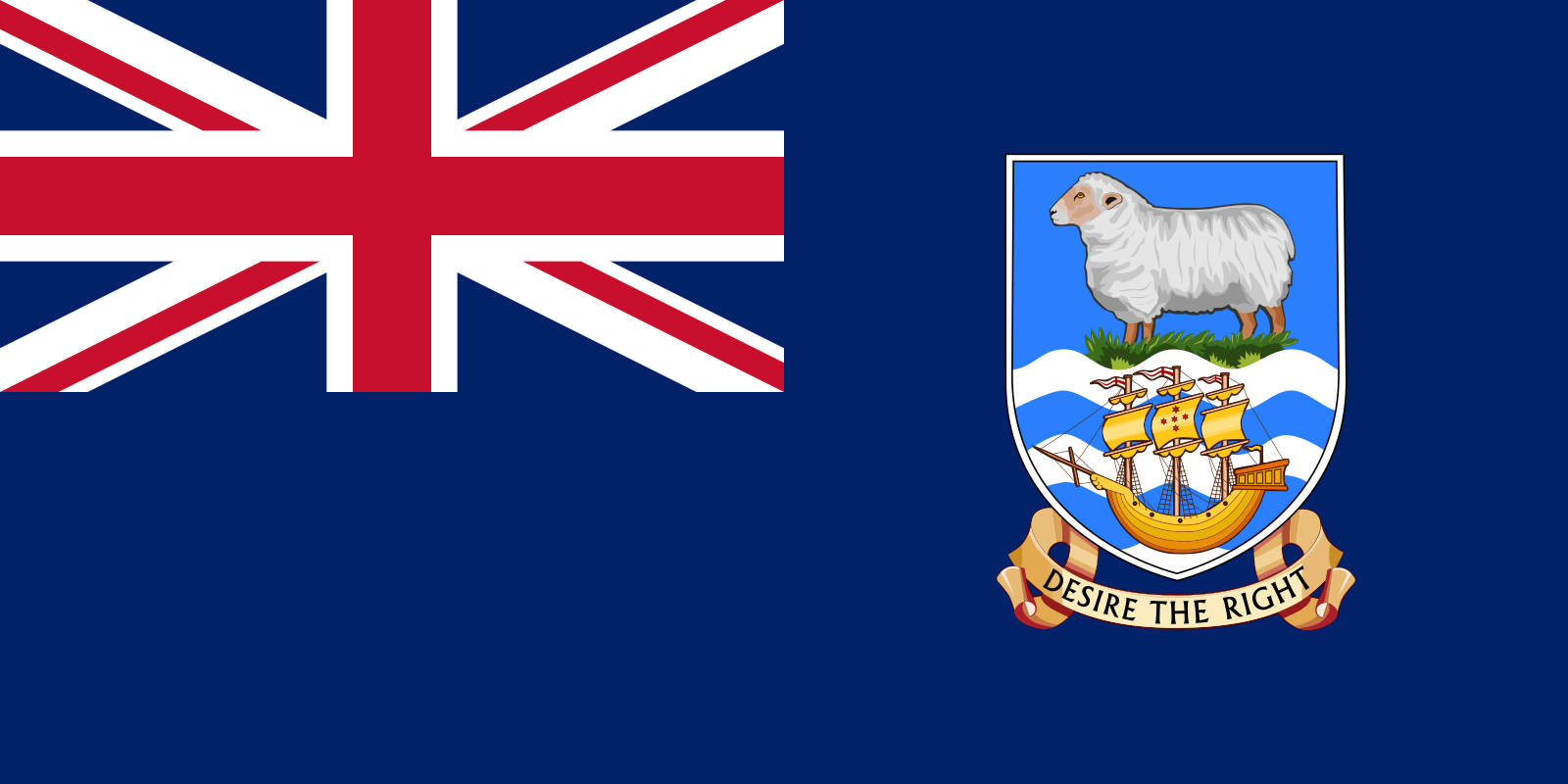
Falkland Islands Flag, Government of Great Britain, Wikimedia Commons, 1948
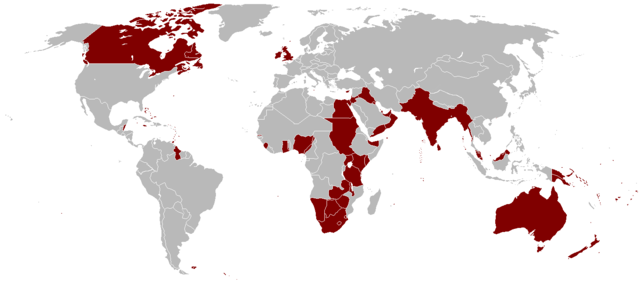
British Empire by Vadac, Wikimedia Commons, 27 August 2008
"After all, the Falklands were only a small outpost of the long-dead British Empire and were inhabited by little more than a few million sheep and 1,800 mainly Cornish expatriates."
~ Commander Nigel "Sharkey" Ward, the Black Death, 1992
"The origins of the dispute over the Falkland Islands dated almost as far back as their discovery by Europeans...When Argentina became independent of Spain in 1816, it considered itself the heir to all Spanish claims. Britain, which had left the islands, though still claiming them, in 1774, renewed its interest in them after Argentina appointed a political and military governor there in 1829. In January 1833, the British reoccupied the islands, and have been there ever since."
~ Charles Moore, Margaret Thatcher: The Authorized Biography, 2013
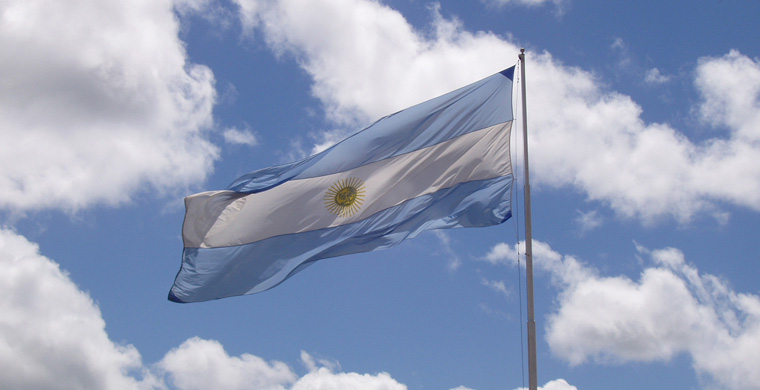
Patriotism in Argentina by Marianocecowski, Wikimedia Commons
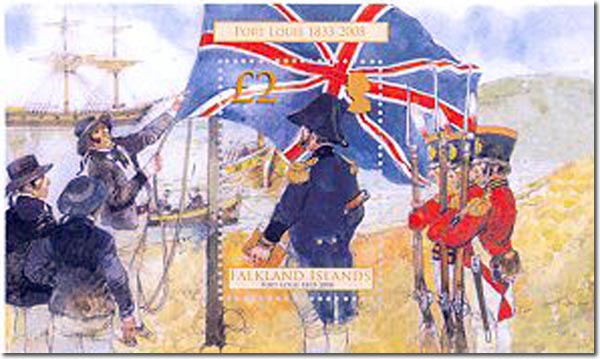
British Claim the Falklands in 1833, Falklands Islands
"Safeguarding national honour, without rancour but with firmness demanded by the circumstances, we have recovered the southern islands which are a legitimate part of our national territory. This decision was prompted by the need to put an end to the interminable seccession of evasive and dilatory tactics used by Great Britain to perpetuate its domination over the islands and their zone of influence."
~ President Leopoldo Galtieri, Address to the Nation, 2 April 1982
Political Leaders
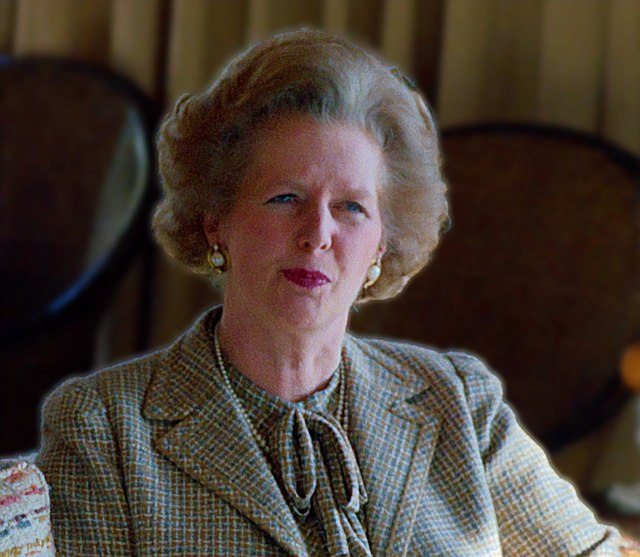
Margaret Thatcher, National Archives and Records Administration, 22 December 1984
"Margaret Thatcher's political career was one of the most remarkable of modern times. Born in October 1925 at Grantham, a small market town in eastern England, she rose to become the first (and for two decades the only) woman to lead a major Western democracy. She won three successive General Elections and served as British Prime Minister for more than eleven years (1979-90), a record unmatched in the twentieth century."
~ Margaret Thatcher Foundation
"The war was very sudden. No one predicted the Argentine invasion more than a few hours in advance, though many predicted it in retrospect. When I became Prime Minister I never thought that I would have to order British troops into combat and I do not think I have ever lived so tensely or intensely as during the whole of that time."
~ Margaret Thatcher, The Downing Street Years, 1993
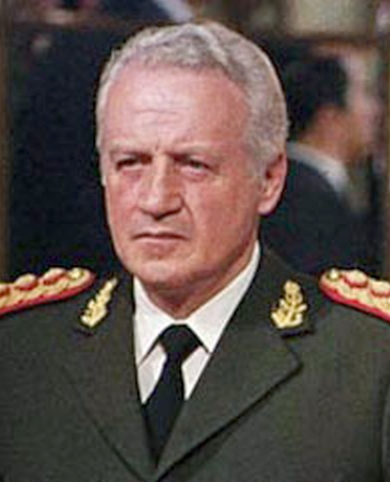
Leopoldo Galtieri, Diario La Nación, Wikimedia Commons, 2 April 1982
"Galtieri, the grandson of poor Italian immigrants, had graduated as an officer in 1949 from the United States' School of the Americas in Panama. In 1976 the Argentinian military overthrew the brief, disastrous presidency of Isabel Peron, second wife and widow to Juan Domingo, and began to repress Argentina's guerrillas, the Montoneros and the Revolutionary Army of the Poor (ERP)...By the late 1970s, Galtieri was head of the Second Army Corps in Rosario in central Argentina."
~ Isobel Hilton, The Guardian, 2003
"Leopoldo Fortunato Galtieri (born 1926) served as president of Argentina during the 1982 Falkland Islands War with Great Britain. After his country's defeat he [and the Argentine junta, the main political party at the time] was cashiered. Had it not been for the Falklands Islands War of 1982, Leopoldo Galtieri would have become just another forgotten Latin American general. As a result of this war, though, he became the most memorable of the generals to rule Argentina since Juan Peron was driven from power in 1955."
~ Robert Farley, The National Interest, 2014
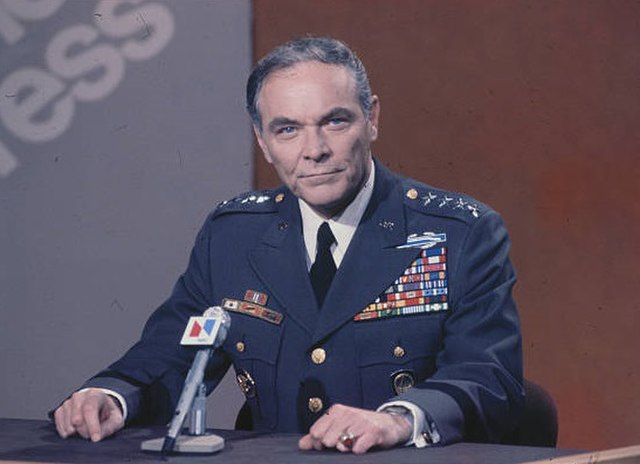
Alexander Haig, Nato Archives, 1977
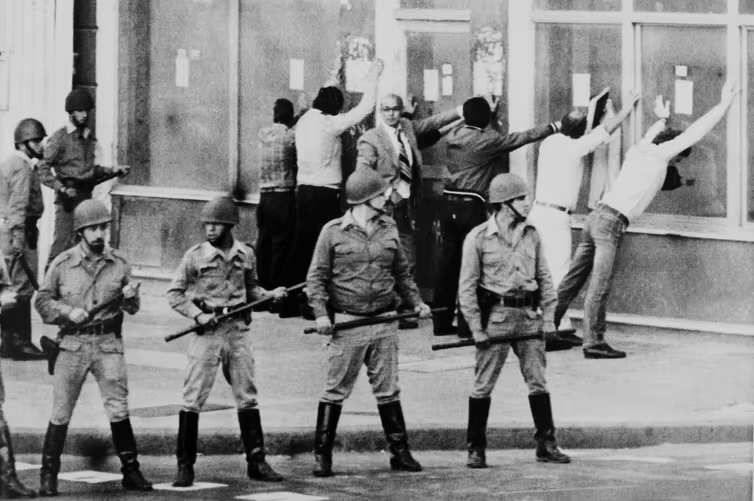
Argentine Military Restraining Citizens by Eduardo DiBaia, AP Photos, 1982
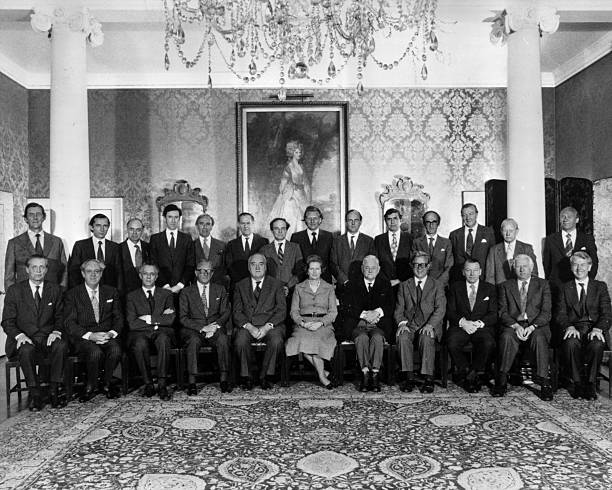
Thatcher and her Cabinet, by Keystone, Hulton Archive, 21 June 1979
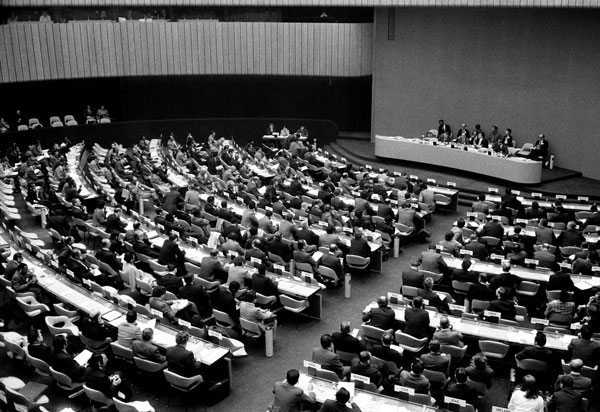
United Nations Convention, UN Archives, 1982
"We must find an element that brings cohesion to society and the country. That element is Malvinas."
~Admiral Jorge Isaac Anaya, 1982